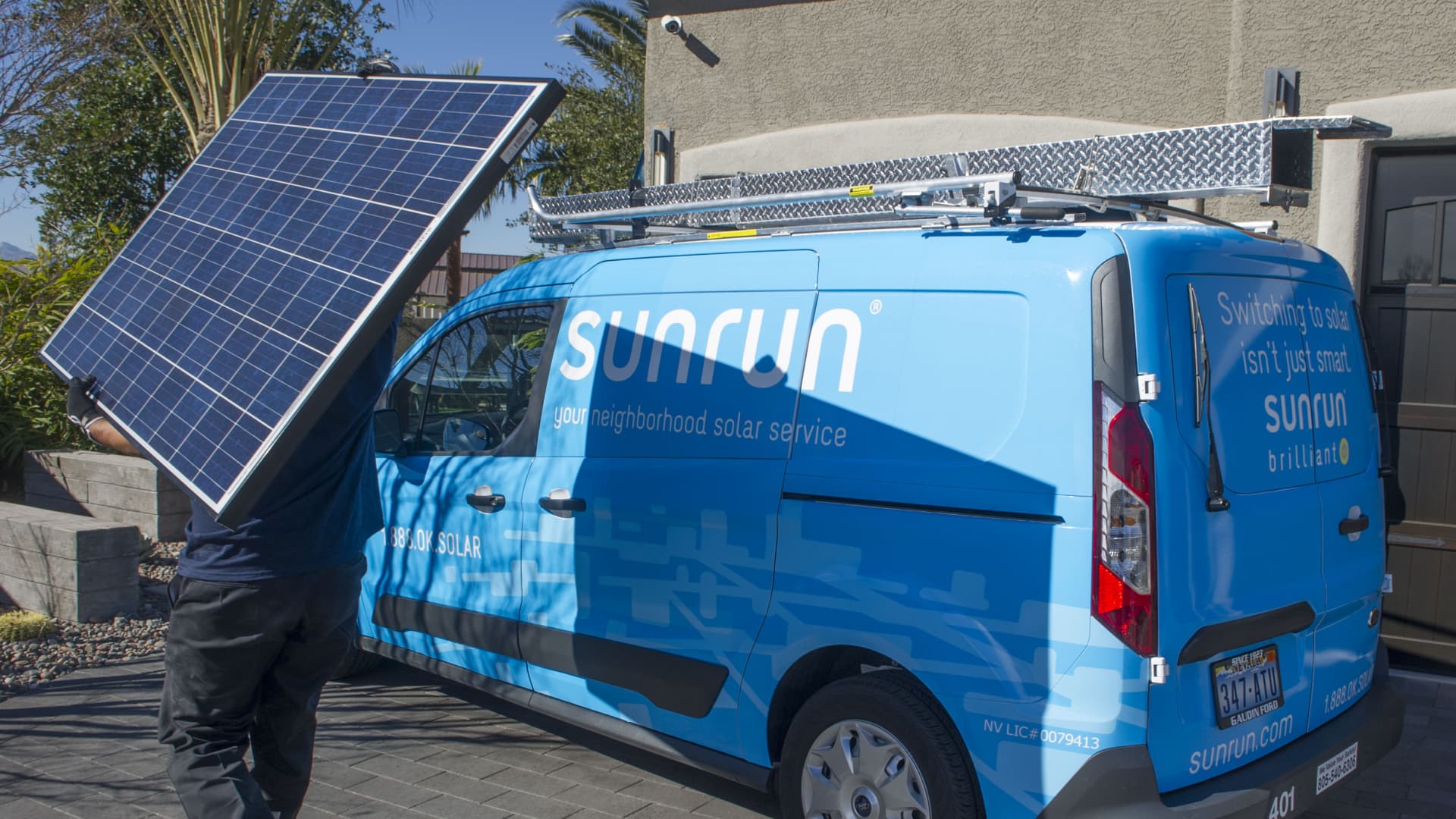Chinese e-commerce giant Alibaba's Taobao and Tmall reported strong sales in categories eligible for government subsidies.
Serene Lee | Sopa Images | Lightrocket | Getty Images
China's latest shopping festival, which wrapped up Wednesday, pointed to a pickup in consumption, as e-commerce companies reported strong sales of consumer electronics, as well as beauty and pet care products.
The 618 festival is one of the biggest promotional periods of the year in China as Alibaba, JD.com and other major Chinese e-commerce platforms roll out discounts.
This year, the festival's gross merchandise value, a measure of sales over time, surged by 15.2% from last year to an estimated to 855.6 billion yuan ($119 billion), according to retail data provider Syntun.
That points to some recovery in consumption, after Syntun data for last year's 618 festival revealed a year-on-year decline in sales for the first time in eight years. However, as has been the case with other annual shopping events, retailers expanded the promotional period to start May 13, a week earlier than in 2024, before ending June 18.
Still, JD.com said the number of shoppers participating hit a record high, more than doubling year on year between May 30 and June 18 to an unspecified figure. More than 2.2 billion orders were recorded across JD's channels, which include online and offline stores, food delivery and quick commerce, according to the retailer.
Investors were surprised Monday by a better-than-expected 6.4% increase in national retail sales in May from a year ago — the fastest increase since December 2023, according to official data accessed via Wind Information.
Chinese consumers are spending "a lot of money on outerwear. Cosmetics and beauty doing really well," Jacob Cooke, co-founder and CEO of WPIC Marketing + Technologies, told CNBC on Friday. The company helps foreign brands — such as Vitamix and iS Clinical — sell online in China and other parts of Asia.
His firm estimates that gross merchandise value during 618 grew by around 14.1% from a year ago, pointing to a slightly slower increase than what Syntun reported.
He also pointed to growing numbers of customers outside of China's big, well-known cities, based on the packages he's seen leaving his company's warehouse.
Subsidy impact
Beijing's trade-in program to subsidize certain consumer products such as consumer electronics helped boost sales.
Household appliances emerged champion among the categories, bringing in 110.1 billion yuan in sales, while beauty and skin care products clocked in 43.2 billion yuan in sales, according to Syntun.
Similarly, Chinese e-commerce giant Alibaba's Taobao and Tmall reported strong sales in categories eligible for government subsidies — with initial sales more than tripling from the same period around the Nov. 11 Singles' Day shopping festival, indicating increased consumer interest in the newest batch of subsidies.
Taobao's generative artificial intelligence tools also boosted sales. Its image-to-video feature and an advanced marketing bidding model boosted campaign return on investment by an average of 12%, the company said earlier this month. That echoes how Alibaba and other major Chinese companies reported improved first-quarter consumer sales, bolstered in part by AI-powered marketing tools.
Shoppers are also splurging on their pets. Taobao and Tmall noted a surge in demand for pet care products, as total sales in the first 100 minutes surpassed the total sales from the first four hours of the same period last year.

But despite strong sales, the mid-year e-commerce festival lost some steam toward the end after some Chinese provincial governments ran out of money to keep offering trade-in subsidies, Chinese media Yicai reported Thursday.
"We believe the June 18 promotion this year could have been stronger, had the trade-in subsidy program remained intact," Nomura analysts said in a note Thursday.
The analysts added that of 32 mainland China regions, around a dozen have suspended trade-in programs. State-run news agency Xinhua on Friday refuted claims that regions had canceled the subsidies.
Xinhua on Friday also reported that Chinese consumers can expect more consumer goods subsidies from the government as early as July.
Too much of a good thing?
This year's 618 festival lasted over a month, running from May 13 to June 18. While retail sales have improved in that period, experts warn that the prolonged duration of such festivals could reduce the incentive for consumption.
"If you do have these festivals, and that's becoming more regular feature of these online platforms that these discounts, rebates and special offers, they continue all throughout the year in different guises, then it becomes difficult for the average consumer to keep on participating in them," said Manishi Raychaudhuri, CEO of Emmer Capital Partners, on CNBC's "The China Connection" on Friday.
Instead, the government and companies will have to think of more innovative ways to boost domestic consumption, he added.
Beijing has opted not to hand out cash to consumers, instead focusing on subsidies for specific products and incremental measures to support employment.
— CNBC's Evelyn Cheng contributed to this report.

 7 hours ago
34
7 hours ago
34




























 English (US)
English (US)